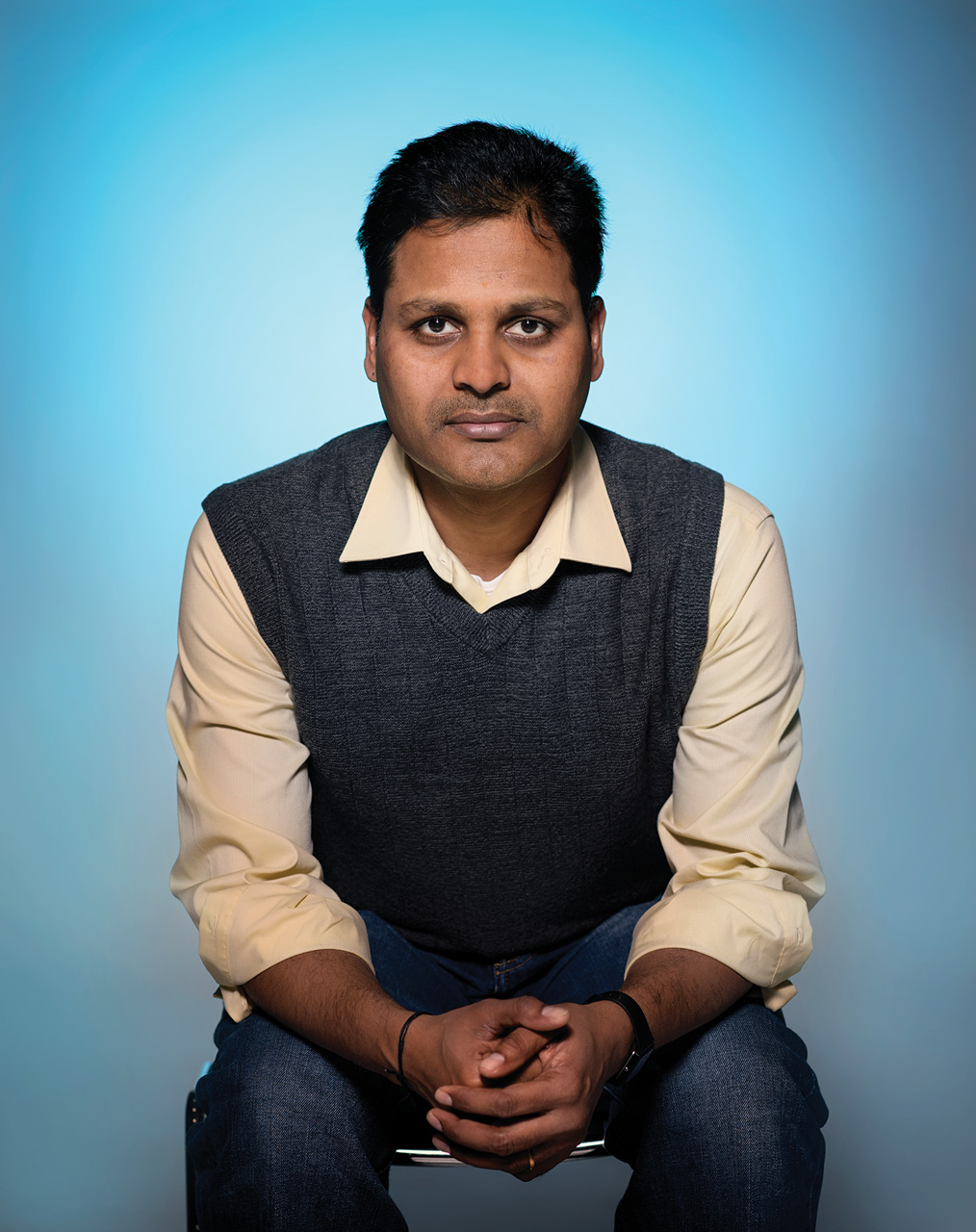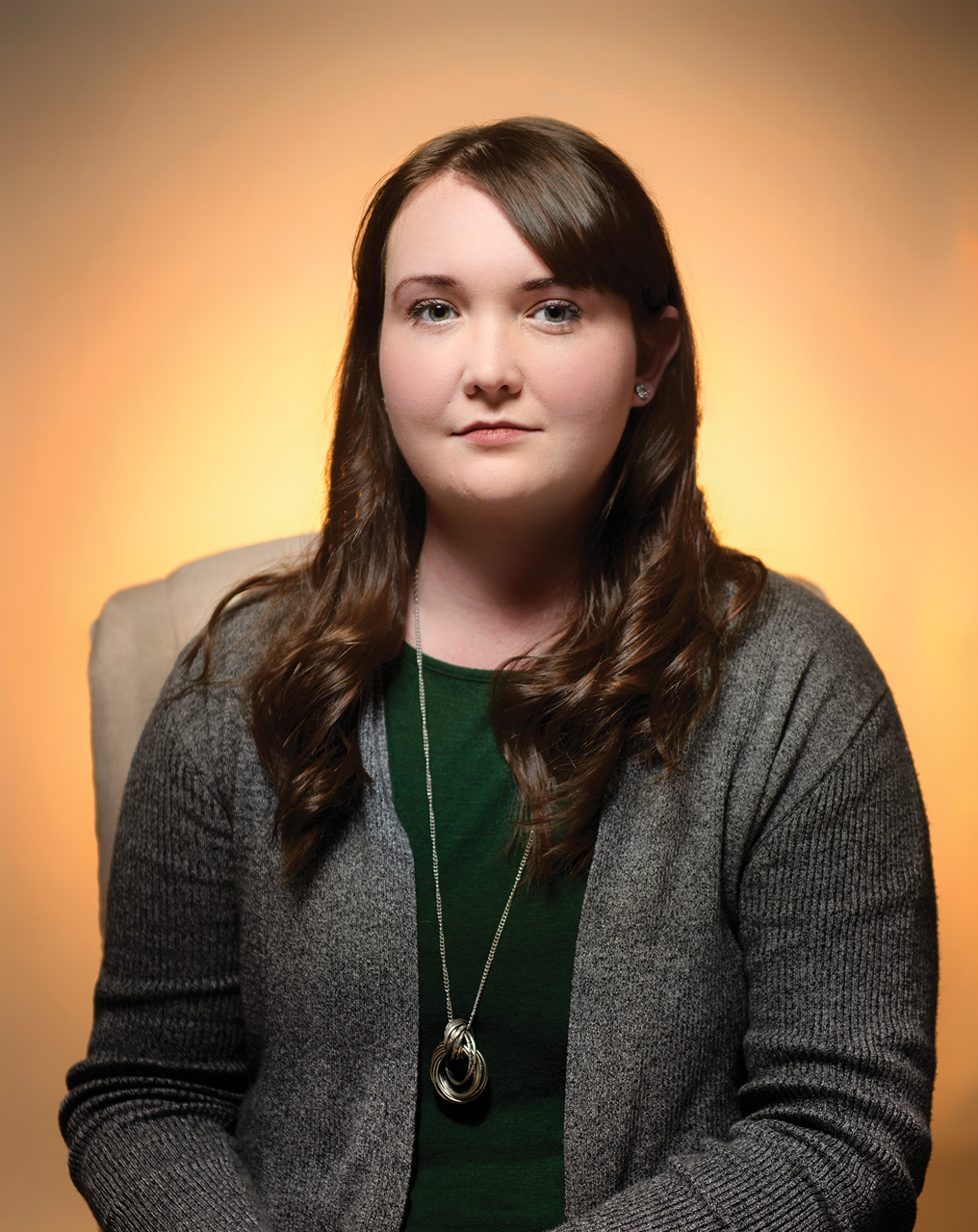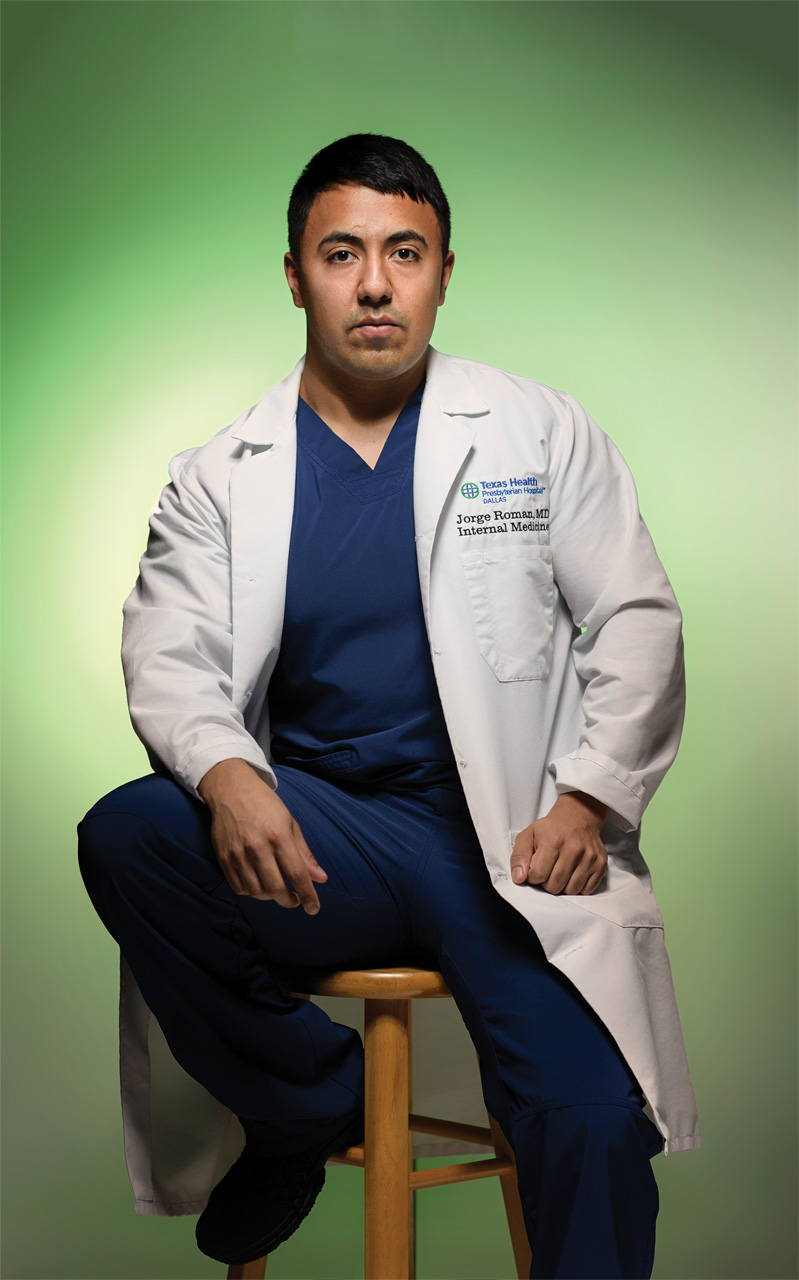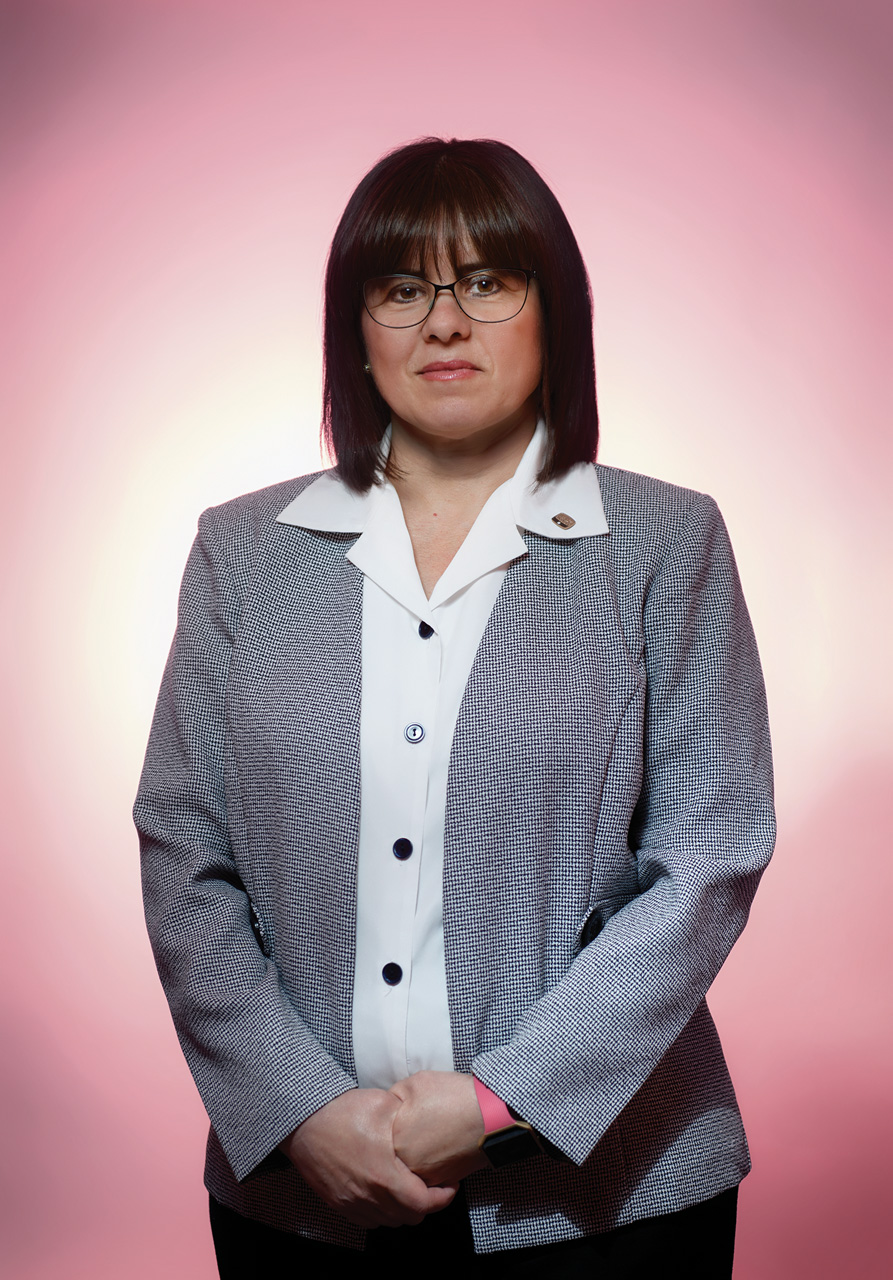"If one reaction works, it will give me a new project," says Marpu, who first came
to UNT in 2005 as a chemistry major before switching to materials science and engineering.
His experiments as a graduate student also got him thinking about cancer cells, which
in the early stages are often difficult to diagnose or differentiate from healthy
tissue. Then, once the disease is diagnosed, it is difficult to target and kill cancer
cells without affecting healthy cells and causing side effects like those that can
come from chemotherapy.
Marpu's research focuses on the creation of biocompatible gold nanomaterials and optical
sensors. The optical sensors have the ability to differentiate between healthy and
cancerous cells based on differences in optical properties, while the gold nanomaterials
have the capacity to absorb light and generate heat that eventually can be selectively
directed to kill the cancer cells.
Though such heat-generating nanomaterials were known before, Marpu and his team are
working to make these biocompatible and viable to the human body with minimal to no
side effects. Current state-of-the-art nanomaterials with similar properties suffer
from toxicity issues, a challenge this research is addressing.
Marpu's work on the project with Mohammad A. Omary, University Distinguished Research Professor of chemistry, physics, and mechanical and energy engineering, has resulted in one patent with another pending. They have obtained materials from
collaborators at the National Cancer Institute's Laboratory of Cell Biology to explore
the possibility that the UNT nanoparticles might overcome some of the defined mechanisms
of drug resistance in cancer.
Other UNT researchers also are looking at innovative ways to fight cancer. Ron Mittler -- professor of biological sciences and researcher in UNT's BioDiscovery Institute, one of the university's Institutes of Research Excellence -- is part of a team from two countries and several universities that has made major
discoveries. The team connected a single protein to some of the most lethal types
of breast cancer and then found a way to suppress the protein and stop tumor growth.
They are now conducting clinical trials.
Chemistry professor G. Andrés Cisneros and doctoral student researchers Alice Walker and Pavel Silvestrov have discovered and characterized a novel genetic mutation associated with prostate
cancer in African American men. Francis D'Souza, University Distinguished Research Professor of chemistry, is collaborating on a chemical
sensor device that could detect cancer in its early stages, giving patients their
best opportunity for recovery.
Biostatistics professor Xuexia 'Helen' Wang has studied young cancer patients' health records at several hospitals and the Children's
Oncology Group to determine whether certain genes are behind later health problems
connected to chemotherapy and radiation. And history professor Constance Hilliard
has pioneered the field of "African evolutionary history," which explores the intersection
of genetic adaptations and ecological environments. She uncovered the link between
an ethnic-specific genetic variant and black Americans' unusually high susceptibility
to a certain class of cancers.
Su Gao, dean of the College of Science, says UNT's work in the fight against cancer demonstrates not only the high quality
of the faculty's research abilities but also their sense of social responsibility.
"Our university should be a place where humanity can look to find solutions to its
problems, and I am proud that our faculty are making great contributions to this crucial
field," he says. "What our students are learning is directly tied to addressing society's
needs, and they are encouraged to take part in such research to help make the world
a better place for everyone."




